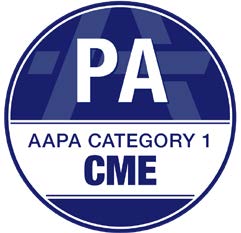The Gut in Practice: Functional Testing and Therapeutic Strategies for Gastrointestinal Disorders
This activity supports healthcare teams in applying functional GI assessment and integrative interventions, aligning with their scope to optimize diagnosis, management, and patient care.
Target Audience
This activity is designed for an audience of Physicians, PAs, Pharmacists, and Nurses.
Learning Objectives
- Describe the key functions of each section of the gastrointestinal tract from mouth to colon.
- Explain the roles of digestive secretions, motility, and the migrating motor complex (MMC) in maintaining GI function.
- Discuss the importance of mucosal immunity, gut barrier integrity, and the enteric nervous system in gastrointestinal health.
- Summarize the role of the gut microbiome in supporting digestion, immunity, and systemic health.
- Differentiate between stool testing methods and interpret the clinical relevance of common stool markers.
- Explain the principles of breath testing for SIBO, including gas patterns, substrate selection, and interpretation limitations
- Determine when formal GI testing is appropriate versus when an elimination or therapeutic trial may be the preferred approach
- Match gastrointestinal test selection to patient symptoms, history, and clinical presentation.
- Differentiate when to incorporate adjunctive markers (e.g., calprotectin) to support diagnosis of inflammatory conditions such as IBD.
- Evaluate test results within the broader clinical context to improve accuracy and avoid over-reliance on laboratory data alone
- Differentiate between IBS subtypes (IBS-D, IBS-C, IBS-M) and their clinical presentations.
- Explain root cause drivers of functional bowel disorders, including motility disturbances, dysbiosis, and visceral hypersensitivity.
- Assess the role of stress and HPA axis dysregulation in gastrointestinal symptom patterns.
- Interpret breath test findings and compare conventional pharmacologic options with functional medicine strategies for IBS and related conditions.
- Describe the pathophysiology of small intestinal bacterial and methanogen overgrowth (SIBO/SIMO).
- Identify common risk factors for overgrowth, including medications, motility disorders, surgeries, and adhesions.
- Interpret breath test patterns for hydrogen, methane, and hydrogen sulfide to guide differential diagnosis.
- Explain the relationship between motility, MMC function, and bile flow in the development of SIBO/SIMO
- Identify key inflammatory markers and clinical red flags associated with Crohn’s disease and ulcerative colitis.
- Describe assessment and testing patterns commonly used in the evaluation of IBD.
- Differentiate functional GI symptoms from active inflammatory disease in patients with IBD.
- Differentiate between hypochlorhydria and hyperacidity based on clinical clues and dispel common misconceptions about stomach acid.
- Explain the role of H. pylori and other pathogens in GERD and outline appropriate testing considerations.
- Review conventional pharmacologic treatment options for GERD and their mechanisms of action.
- Discuss functional medicine perspectives on upper GI disorders, including root-cause contributors and integrative management strategies.
- Describe the components of the 5R protocol (Remove, Replace, Reinoculate, Repair, Rebalance) and their role in restoring gastrointestinal health.
- Differentiate when to use antimicrobials, binders, or elimination diets in the removal phase.
- Identify key digestive supports, probiotics, and nutrients used to optimize gut healing and barrier integrity.
- Apply lifestyle-based strategies—including stress management, circadian rhythm support, and mindful eating practices—to promote long-term GI balance.
- Review conventional pharmacologic therapies for IBS, SIBO, and GERD, including mechanisms of action and clinical indications.
- Differentiate between treatment options based on patient presentation, symptom subtype, and comorbid conditions.
- Identify potential adverse drug reactions and drug–nutrient interactions associated with common GI pharmacotherapies.
- Identify common drug-induced nutrient depletions and adverse drug reactions (ADRs) that impact gastrointestinal health.
- Explain the mechanisms by which antibiotics and NSAIDs contribute to GI dysfunction and nutrient imbalances.
- Apply knowledge of drug–nutrient interactions to anticipate and mitigate potential gastrointestinal complications in patient care.
- Evaluate case studies to develop integrative strategies for managing GI-related ADRs and supporting nutrient repletion.
Commercial Support
There is no commercial support for this activity
Name | Relationship | Commercial Interest |
Melody Hartzler, PharmD (faculty) | Advisor | Designs for Health Advisory Board |
Lara Zakaria, PharmD(faculty) | Advisor | Scientific Advisory Board Allergy Research Group |
| Consultant | Speaker/Content development consultant Pendulum |
Dorothy Caputo, MA, BSN, RN - President, AKH Inc., Advancing Knowledge in Healthcare | N/A | Nothing to disclose |
Bernadette Makar, MSN, APRN-BC, NP-C (planner/reviewer) | N/A | Nothing to disclose |
Dorothy Duffy, RPh (planner/reviewer) | N/A | Nothing to disclose |
AKH Inc Staff and Planners | N/A | Nothing to disclose |
Revelar Health, LLC Staff and Planners | N/A | Nothing to disclose |
All of the relevant financial relationships listed for these individuals have been mitigated. | ||
All of the relevant financial relationships listed for these individuals have been mitigated.
It is the policy of AKH Inc. to ensure independence, balance, objectivity, scientific rigor, and integrity in all of its continuing education activities. The author must disclose to the participants any significant relationships with ineligible companies whose products or devices may be mentioned in the activity or with the commercial supporter of this continuing education activity. Identified conflicts of interest are mitigated by AKH prior to accreditation of the activity. AKH planners and reviewers have no relevant financial relationships to disclose.
Disclosure of Unlabeled Use and Investigational Product
This educational activity may include discussion of uses of agents that are investigational and/or unapproved by the FDA. Please refer to the official prescribing information for each product for discussion of approved indications, contraindications, and warnings.
Disclaimer
This course is designed solely to provide the healthcare professional with information to assist in his/her practice and professional development and is not to be considered a diagnostic tool to replace professional advice or treatment. The course serves as a general guide to the healthcare professional, and therefore, cannot be considered as giving legal, nursing, medical, or other professional advice in specific cases. AKH Inc. specifically disclaim responsibility for any adverse consequences resulting directly or indirectly from information in the course, for undetected error, or through participants misunderstanding of the content. If you would like to opt out from future communications from AKH please send an email to [email protected] with your information with "Opt Out" in the subject line.
 In support of improving patient care, this activity has been planned and implemented by AKH Inc., Advancing Knowledge in Healthcare and Revelar Health, LLC AKH Inc., Advancing Knowledge in Healthcare is jointly accredited by the Accreditation Council for Continuing Medical Education (ACCME), the Accreditation Council for Pharmacy Education (ACPE), and the American Nurses Credentialing Center (ANCC), to provide continuing education for the healthcare team.
In support of improving patient care, this activity has been planned and implemented by AKH Inc., Advancing Knowledge in Healthcare and Revelar Health, LLC AKH Inc., Advancing Knowledge in Healthcare is jointly accredited by the Accreditation Council for Continuing Medical Education (ACCME), the Accreditation Council for Pharmacy Education (ACPE), and the American Nurses Credentialing Center (ANCC), to provide continuing education for the healthcare team.
![]() This activity was planned by and for the healthcare team, and learners will receive 9.0 Interprofessional Continuing Education (IPCE) credit for learning and change.
This activity was planned by and for the healthcare team, and learners will receive 9.0 Interprofessional Continuing Education (IPCE) credit for learning and change.
Physicians
AKH Inc., Advancing Knowledge in Healthcare designates this enduring material for a maximum of 9.0 AMA PRA Category 1 Credit(s)™. Physicians should claim only the credit commensurate with the extent of their participation in the activity.
Pharmacists
AKH Inc., Advancing Knowledge in Healthcare designates this continuing education activity for 9.0 contact hours.
Nursing
Credit being awarded 9.0 ANCC contact hours
Physician Associates AKH Inc., Advancing Knowledge in Healthcare has been authorized by the American Academy of Physician Associates (AAPA) to award AAPA Category 1 CME credit for activities planned in accordance with AAPA CME Criteria. This activity is designated for 9.0 AAPA Category 1 CME credits. Approval is valid until 11/21/2026. PAs should only claim credit commensurate with the extent of their participation.
AKH Inc., Advancing Knowledge in Healthcare has been authorized by the American Academy of Physician Associates (AAPA) to award AAPA Category 1 CME credit for activities planned in accordance with AAPA CME Criteria. This activity is designated for 9.0 AAPA Category 1 CME credits. Approval is valid until 11/21/2026. PAs should only claim credit commensurate with the extent of their participation.
Nurse Practitioners This activity has been planned and implemented in accordance with the Accreditation Standards of the American Association of Nurse Practitioners (AANP) through the joint providership of AKH Inc., Advancing Knowledge in Healthcare and Revelar Health, LLC. AKH Inc., Advancing Knowledge in Healthcare is accredited by the American Association of Nurse Practitioners as an approved provider of nurse practitioner continuing education. Provider number: 030803. This activity is approved for 9.0 contact hour(s) (which includes XX hour(s) of pharmacology).
This activity has been planned and implemented in accordance with the Accreditation Standards of the American Association of Nurse Practitioners (AANP) through the joint providership of AKH Inc., Advancing Knowledge in Healthcare and Revelar Health, LLC. AKH Inc., Advancing Knowledge in Healthcare is accredited by the American Association of Nurse Practitioners as an approved provider of nurse practitioner continuing education. Provider number: 030803. This activity is approved for 9.0 contact hour(s) (which includes XX hour(s) of pharmacology).
Available Credit
- 9.00 AANP
- 0.00 AANP Pharmacology Contact Hours
- 9.00 AAPA Category 1 CME
- 9.00 ACPE Pharmacist
- 9.00 AMA PRA Category 1 Credit™
- 9.00 ANCC
- 9.00 Attendance

 Facebook
Facebook X
X LinkedIn
LinkedIn Forward
Forward